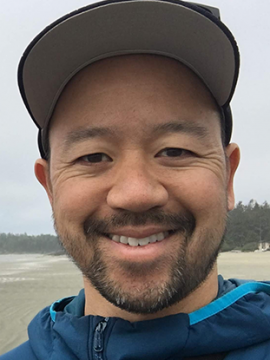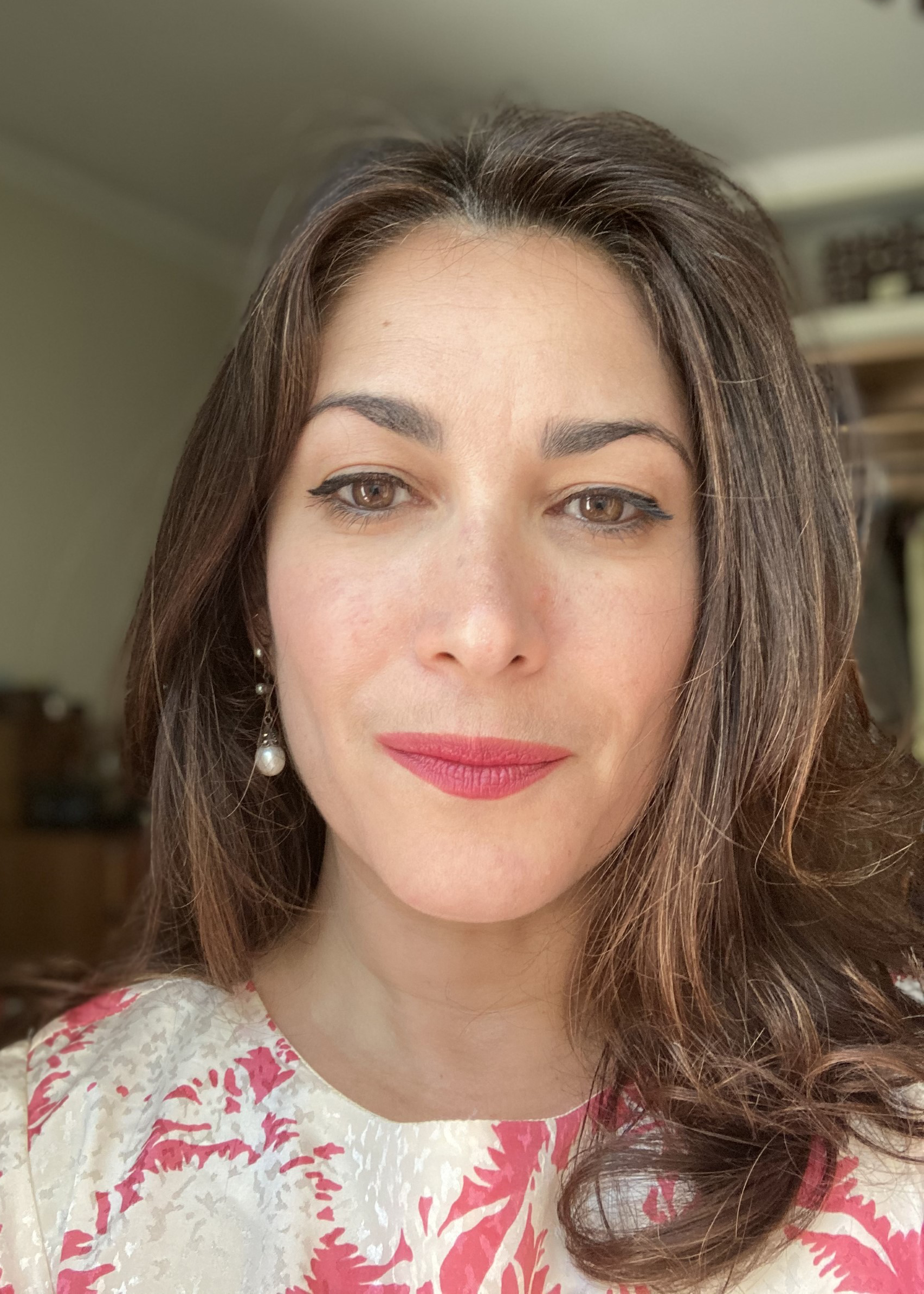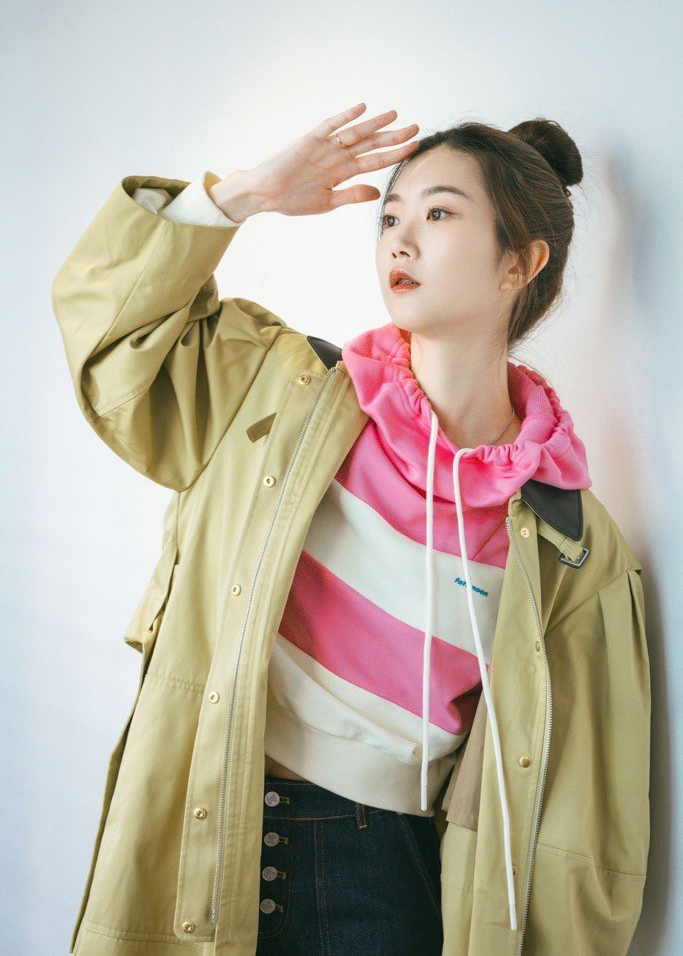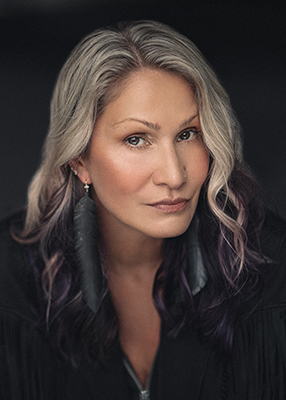Adrian Liem

A version of this interview originally appeared on the Psychology website, October 2019.
Adrian Liem’s curiosity about human behaviour first brought him to study psychology at UBC over 20 years ago. Today, he is the man behind UBC.ca, using his degree to understand how people interact with the university’s website and ensuring it meets the needs of users as UBC’s Manager, Digital Communications.
Adrian credits UBC for not only shaping, but building his career. In his own words, he reflects on his time as a student and how UBC influenced his path.
What is your current career?
I currently manage a digital communications team at UBC. This work involves a mix of disciplines including analytics, user experience research, information architecture, design, content creation (writing, photo and video production), web development, and project management. And although the work heavily involves digital technologies, the purpose of my work from the 30,000 ft view is to support the flow of information and knowledge, and to help people as well as UBC as an institution achieve their goals.
Why did you choose to study psychology at UBC?
Well, when I graduated high school, I didn’t really know what I wanted to study, but I knew that I wanted to go to UBC. I chose UBC largely because of its reputation, but also because it’s where my dad had graduated and where my older sister was going to school (and eventually where my younger brother went as well). In my first year at UBC, I was in Arts One, and for the first two years of my undergrad I had a very diverse range of interests including philosophy and computer science. Ultimately, I chose psychology because as I looked at all these other fields and thought about the end purpose of it all, at the root of what it’s all about is people. I approached my undergraduate education as a means of getting a strong foundation in understanding the fascinating question of why we do what we do.
When you were a student, was there anything or anyone who inspired you?
I had a prof who taught organizational behaviour who really inspired me to continue what has become a lifelong interest in studying and applying principles of psychology in nearly every aspect of my work and even beyond into my own personal development and areas like team sports.
As an undergrad, I also played for and helped run the UBC men’s ultimate frisbee team. The people I met through the men’s and women’s ultimate programs were from all walks of academic disciplines, athletic backgrounds, and ages. Collectively, it was an incredibly inspiring group to be a part of, and it’s not too far from the truth for me to say that it was this community of people, the experiences we shared, and the goals we collectively worked towards that kept me engaged with my life as a student at UBC.
In your experience, how does the value of a psychology degree translate into the real world?
From what I have observed, a psychology degree is as valuable as you make it. On its own, an undergraduate degree in psychology doesn’t translate directly into a specific career the way other degrees might. The real value is in drawing connections to the things you continue to learn and observe throughout all aspects of your life that you can always tie back to the theories you learn about in your psychology undergrad. There is a strong foundation that you can continue to build on as you go through new work and life experiences, but it’s really up to you to make those connections.
How has UBC shaped your career?
Given I have spent the vast majority of my working life at UBC, I can say it has not only shaped my career, it has given me my career! I would say I’ve benefitted from having a very broad exposure to different academic areas and interdisciplinary opportunities.
I’ve also had a few starts at business ideas, most of which have failed or turned into a hobby more than a business. In spite of the misses, I still find it exciting when the lightbulb goes on and the idea strikes. It’s also inherently rewarding to create something tangible that contributes something meaningful to the world that didn’t previously exist.
This fall I am also enrolled in UBC’s organizational coaching program so the learning continues.
Do you have a motto?
I have a few, but I have two that have been a bedrock for me. Both are lyrics written by Eddie Vedder. The first is: “I’ll ride the wave where it takes me.” I like this because it acknowledges that there are forces in life that are outside your control, and there is an implied acceptance, that, even if you can’t control where things take you, ultimately you are still in control of choosing your attitude and mindset. (It also has extra meaning to me now that I have finally learned how to surf!) The other is: “I know I was born and I know that I’ll die, the in between is mine. I am mine.” I repeat this to myself any time I experience existential angst and need a reminder to make the most of this life.
Adrian Liem



A version of this interview originally appeared on the Psychology website, October 2019.
Adrian Liem’s curiosity about human behaviour first brought him to study psychology at UBC over 20 years ago. Today, he is the man behind UBC.ca, using his degree to understand how people interact with the university’s website and ensuring it meets the needs of users as UBC’s Manager, Digital Communications.
Adrian credits UBC for not only shaping, but building his career. In his own words, he reflects on his time as a student and how UBC influenced his path.
What is your current career?
I currently manage a digital communications team at UBC. This work involves a mix of disciplines including analytics, user experience research, information architecture, design, content creation (writing, photo and video production), web development, and project management. And although the work heavily involves digital technologies, the purpose of my work from the 30,000 ft view is to support the flow of information and knowledge, and to help people as well as UBC as an institution achieve their goals.
Why did you choose to study psychology at UBC?
Well, when I graduated high school, I didn’t really know what I wanted to study, but I knew that I wanted to go to UBC. I chose UBC largely because of its reputation, but also because it’s where my dad had graduated and where my older sister was going to school (and eventually where my younger brother went as well). In my first year at UBC, I was in Arts One, and for the first two years of my undergrad I had a very diverse range of interests including philosophy and computer science. Ultimately, I chose psychology because as I looked at all these other fields and thought about the end purpose of it all, at the root of what it’s all about is people. I approached my undergraduate education as a means of getting a strong foundation in understanding the fascinating question of why we do what we do.
When you were a student, was there anything or anyone who inspired you?
I had a prof who taught organizational behaviour who really inspired me to continue what has become a lifelong interest in studying and applying principles of psychology in nearly every aspect of my work and even beyond into my own personal development and areas like team sports.
As an undergrad, I also played for and helped run the UBC men’s ultimate frisbee team. The people I met through the men’s and women’s ultimate programs were from all walks of academic disciplines, athletic backgrounds, and ages. Collectively, it was an incredibly inspiring group to be a part of, and it’s not too far from the truth for me to say that it was this community of people, the experiences we shared, and the goals we collectively worked towards that kept me engaged with my life as a student at UBC.
In your experience, how does the value of a psychology degree translate into the real world?
From what I have observed, a psychology degree is as valuable as you make it. On its own, an undergraduate degree in psychology doesn’t translate directly into a specific career the way other degrees might. The real value is in drawing connections to the things you continue to learn and observe throughout all aspects of your life that you can always tie back to the theories you learn about in your psychology undergrad. There is a strong foundation that you can continue to build on as you go through new work and life experiences, but it’s really up to you to make those connections.
How has UBC shaped your career?
Given I have spent the vast majority of my working life at UBC, I can say it has not only shaped my career, it has given me my career! I would say I’ve benefitted from having a very broad exposure to different academic areas and interdisciplinary opportunities.
I’ve also had a few starts at business ideas, most of which have failed or turned into a hobby more than a business. In spite of the misses, I still find it exciting when the lightbulb goes on and the idea strikes. It’s also inherently rewarding to create something tangible that contributes something meaningful to the world that didn’t previously exist.
This fall I am also enrolled in UBC’s organizational coaching program so the learning continues.
Do you have a motto?
I have a few, but I have two that have been a bedrock for me. Both are lyrics written by Eddie Vedder. The first is: “I’ll ride the wave where it takes me.” I like this because it acknowledges that there are forces in life that are outside your control, and there is an implied acceptance, that, even if you can’t control where things take you, ultimately you are still in control of choosing your attitude and mindset. (It also has extra meaning to me now that I have finally learned how to surf!) The other is: “I know I was born and I know that I’ll die, the in between is mine. I am mine.” I repeat this to myself any time I experience existential angst and need a reminder to make the most of this life.



